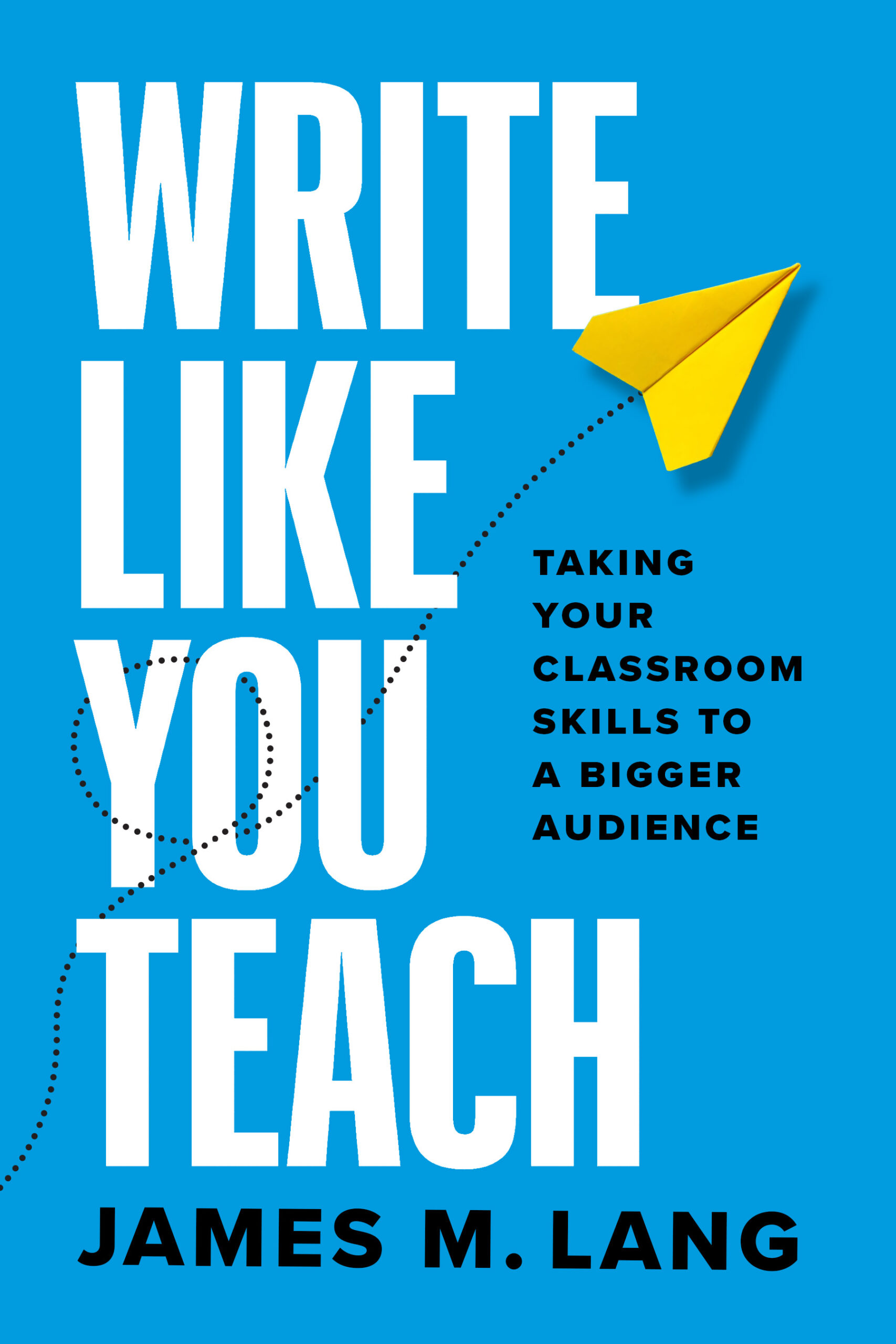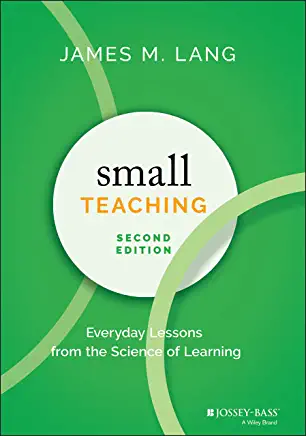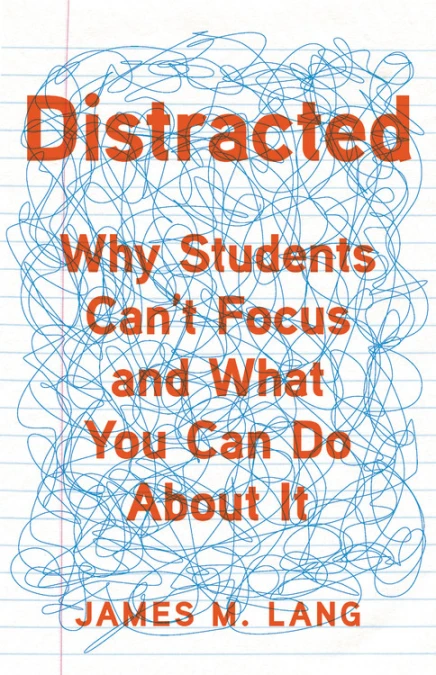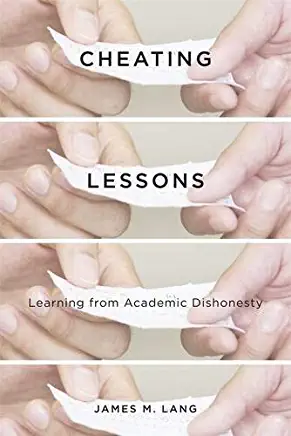Bestselling Education Author and Writing Expert
James M. Lang is Professor of Practice at the Kaneb Center for Teaching Excellence at the University of Notre Dame, and an Emeritus Professor of English at Assumption University in Worcester, MA. He is the author of seven books, the most recent of which are Write Like You Teach: Taking Your Classroom Skills to a Bigger Audience, Distracted: Why Students Can’t Focus and What You Can Do About It, Small Teaching: Everyday Lessons from the Science of Learning, and Cheating Lessons: Learning from Academic Dishonesty. A sought-after speaker, he has given talks and workshops on teaching for faculty at more than three hundred colleges, universities, and schools in the U.S. and abroad, focused on topics such as the science of learning, distraction in the classroom, academic integrity, and navigating AI/ChatGPT.
Lang writes a monthly column on teaching and learning for The Chronicle of Higher Education; his work has appeared in the Chronicle since 1999. His book reviews and public scholarship on higher education have appeared in a wide variety of newspapers and magazines, including Time, Boston Globe, Chicago Tribune, and The Conversation. He co-edits a series of books on teaching and learning in higher education for Oklahoma University Press.
Lang has consulted for the United Nations on the development of teaching materials in ethics and integrity for college faculty, and in September of 2016 he received a Fulbright Specialist grant to work with three universities in Colombia on the creation of a MOOC on teaching and learning in STEM education. He has a BA in English and Philosophy from the University of Notre Dame, an MA in English from St. Louis University, and a Ph.D. in English from Northwestern University.
Praise for Lang’s Talks
“Jim is an incredible speaker and author. We thoroughly enjoyed learning from him when he came to visit campus. He provided an incredible amount of wisdom to our faculty and fellows while maintaining a positive outlook on higher education.”
—Aimee M Hollander, PhD,
Director, Harvard Medical School Curriculum Fellows Program
“Jim was masterful in highlighting the research basis for the science of learning, sharing practical examples that are easy to implement, and providing opportunities for faculty to reflect and discuss implications for their teaching. As our survey results noted, 100% agreed that that they feel able to implement at least one strategy based on the session. I highly recommend Jim to other colleges and universities.”
— Dallas, Milan Sevak, Executive Director, Center for
Socioeconomic Mobility through Education, University of North Texas
“Jim Lang is a masterful storyteller who provided our faculty audience with a compelling mix of context, research findings, and practical suggestions for the classroom. Attendees left the presentation energized and ready to apply new strategies in their classrooms.”
—Christine Rener, Vice Provost for Instructional Development &
Innovation, Grand Valley State University
Praise for Distracted
“An optimistic and useful guide to cultivating student attention…. Lang’s lucid prose and dry wit make for a pleasant reading experience, and his evidence is consistently on-point. Teachers and parents teaching at home will find inspiration and insight in this sterling study of ‘the crucial connection between attention and learning.’”
—Publishers Weekly
“Distracted proves once and for all that the question we face today is not ‘How do we make students stop looking at their phones during class?’ but rather ‘How can we help students find meaning during class?’Packed with specific, easy-to-implement pedagogical strategies for seizing and maintaining students’ academic attention, Distracted is an eminently practical guide for increasing authentic student learning in any subject. It will transform the way we think about teaching and learning in higher education.”
—Jessamyn Neuhaus, SUNY Plattsburgh
“This book will change how you think about education. Distracted takes us on a phenomenal ride into a much misunderstood aspect of human learning and finally into the refreshing light that science, literature, philosophy, and history bring. Anyone who cares about learning — their own or anyone else’s — should take this journey.”
—Ken Bain, author of What the Best College Teachers Do
“Lang’s books have held a place of honor in my library of parenting and education books, and Distracted will, too. It is a delightful mash-up of the research and history on attention and learning. I adore this book and will be recommending it to parents and teachers.”
—Jessica Lahey, author of The Gift of Failure
“Attention is a finite and precious resource we are always in danger of squandering. Distracted will help teachers and students use it to nourish mind and soul.”
—Ian Leslie, author of Curious
“Distracted is a must-read for every classroom teacher. Lang makes a compelling argument that ‘attention is an achievement’ and that we should be cultivating ‘attention renewal’ rather than preventing distractions. He presents practical classroom activities for fostering curiosity and community — with the research to back them up. Candid insights on effective laptop policies, inviting students into the conversation, and the role of assessments make Distracted an invaluable resource that will change how you—and your students — think about learning.”
—Pooja K. Agarwal, Ph.D., cognitive scientist and author of Powerful Teaching
“In order for learning to happen, we need our students to be fully present in the classroom—and we need to be fully present for them as well. This book tells us why we must actively cultivate our students’ ability to focus, weaving together compelling and unexpected approaches for addressing the age-old problem of distracted students.”
—Michelle D. Miller, Northern Arizona University
“Attention is an essential part of the learning process. Yet, to those who teach, attention can feel elusive and fleeting. In Distracted, James Lang helps us navigate the challenges presented by technologies that bring both a world of information, and the potential for endless distractions, to students’ fingertips. Lang encourages us to rethink our attempts to ban anything that may distract learners, and instead, to focus on practices that gain attention.”
—Bonni Stachowiak, Teaching in Higher Ed






